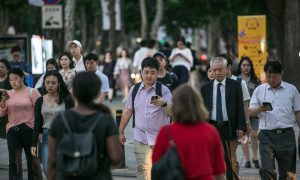With its advanced technology, quality educational resources, modern infrastructure, and high quality of life, South Korea has become the center of many globalimmigrantsKorea is an ideal destination for foreigners. From job opportunities to study opportunities, from cultural attraction to social welfare, Korea has a strong appeal for foreigners. HoweverImmigration to KoreaThe process does not happen overnight; it involves multiple stages, each with specific requirements and processes.
In this article, we will analyze the whole process from visa application to settlement in Korea in detail, helping you to better plan theImmigration to Koreasteps to successfully achieve the settlement goals.
I. Understand visa types and application requirements
Immigration to KoreaThe first step is to choose the type of visa that is right for you. South Korea offers a variety of visa options depending on the purpose of the expatriate. Common visa types include work visas, study visas, investment visas, and family reunion visas. Each type of visa has different application requirements and processes, and choosing the visa route that best suits your needs is the key to successful immigration.
1. Work Visa (E-series Visa)
Work visas are usually available for foreigners who plan to work in Korea. The most common type of work visa is the E-7 visa, which is available to expats with specific specialized skills, such as those in the fields of IT, engineering, and medicine. If you have been offered an employment contract with a Korean company, applying for an E-7 visa will be the fastest way to immigrate to Korea.
2. Student visa (D-series visa)
If you plan to study in Korea, you can apply for a D-2 student visa. Applicants are required to obtain an acceptance letter from a Korean college or university and provide proof of funds to secure financial resources during the period of study.
3. Investment visas (D-series visas)
If you plan to invest or start a business in Korea, you can apply for a D-8 investment visa. This visa is available to foreigners who want to start or invest in a business in Korea, and usually requires a certain amount of investment capital and the submission of a business plan.
4. Family reunification visas (F-series visas)
For foreigners who are married to a Korean citizen or have an immediate family member in Korea, they can apply for an F-6 Spouse Visa or F-1 Family Visa in order to reunite with their family.
5. Permanent Resident Visa (F-5 Visa)
If you have resided in Korea for five years or more and meet the other requirements, you can apply for an F-5 permanent resident visa. This visa allows you to reside in Korea for a long period of time and enjoy treatment similar to that of a Korean citizen.
II. Visa Application and Preparation of Documents
After determining the type of visa, the next step is to prepare the relevant documents and submit the application. The required documents will vary for different types of visas, but they usually include the following:
- Original and photocopy of passport
- Visa Application Form(Can be downloaded from the official websites of Korean embassies and consulates abroad)
- photographs(A recent photograph with a white background is usually required)
- Proof of economic capacity(e.g., bank certificates of deposit, tax returns, pay slips, etc.)
- Proof of education or employment(e.g., degree certificates, work contracts, etc.)
- Health Screening Report(Required for certain visa types)
- Certificate of no criminal record(Required for some visa types)
Before submitting your application, it is recommended that you confirm that all documents meet the requirements of the Korean embassy or consulate to avoid delays in the application process due to incomplete documents.

III. Waiting for Approval and Visa Approval
After submitting your visa application documents, you will need to wait patiently for approval. The length of time for visa approval depends on the specific visa type and generally ranges from a few weeks to a few months. At this point, you can find out the progress of your application through the official website or by contacting the embassy or consulate.
If your visa is approved, you will be notified by the Korean Embassy or Consulate abroad and will need to pick up your visa. For some visa types (e.g. student visa), further registration or interview may also be required upon arrival in Korea.
IV. Entry and Adaptation to Korea
Once you have a visa and are authorized to enter the country, you will begin your official life as an immigrant. Upon arrival in Korea, you will need to complete some necessary registrations and procedures:
- Certificate of registration of foreigners: This is your proof of identity to legally stay in Korea, and all foreigners are required to register with the local immigration office to receive an alien registration card within 14 days of entry.
- Handling of medical insurance: All foreigners living in Korea are required to enroll in Korea's National Health Insurance (NHI). If you already have a job, your employer usually does this for you.
- Bank account and tax registration: Living in Korea requires a bank account and registration of a tax ID number. Most daily transactions and paychecks need to be made through a bank account.
- Learn Korean: Although many people in Korea's major cities can speak English, it is important to learn Korean in order to better integrate into society. Many cities have language schools that offer Korean language programs.
V. Long-term residence and application for permanent residence
Initial visas are usually short-term, and you can extend your visa or switch visa types depending on your situation. If you wish to reside in Korea for a long period of time, you may choose to apply for an F-5 permanent resident visa. The requirements for applying for a permanent resident visa include:

- Have lived in Korea for five years: You need to have resided legally in Korea for at least five years and have not seriously violated Korean law.
- Stable economic sources: You will need to prove that you have sufficient financial means to support yourself and your family in Korea.
- Korean Language Proficiency: Permanent resident visas require a certain level of Korean language proficiency, which is usually achieved through the government-organized Test of Proficiency in the Korean Language (TOPIK).
- No criminal record: When applying for permanent residence, the Korean government usually requires applicants to provide proof of a clean criminal record.
After obtaining permanent resident status, you will enjoy rights similar to those of Korean citizens, including social welfare benefits such as medical insurance, education, and pensions.
VI. Post-settlement life and integration
After successfully immigrating to and settling in Korea, you will begin to enjoy the various benefits and amenities that Korea has to offer. Korea is a country with very good social welfare, offering a wide range of benefits including public healthcare, unemployment insurance, and social security. You can choose to purchase real estate, live permanently, and enjoy a high level of public services.
However, integrating into Korean society will also take some time and effort. Understanding and adapting to Korean culture, social habits and work styles is important for your long-term settlement. In addition to learning the Korean language, it is essential to understand the history, traditions and social norms of Korea.
concluding remarks
From visa application to final settlement.Immigration to KoreaThe entire process involves several steps, each of which requires careful preparation and planning on your part. By choosing the right type of visa, preparing adequate application documents, and adapting well after entering the country, you can successfully achieve your goal of immigrating to Korea. Immigration is not just about changing your place of residence, it is a process of integrating into a completely new society and culture. We hope that the detailed explanations in this article will help you to take a steady step in your journey to immigrate to Korea and embrace a brand new chapter in your life.






